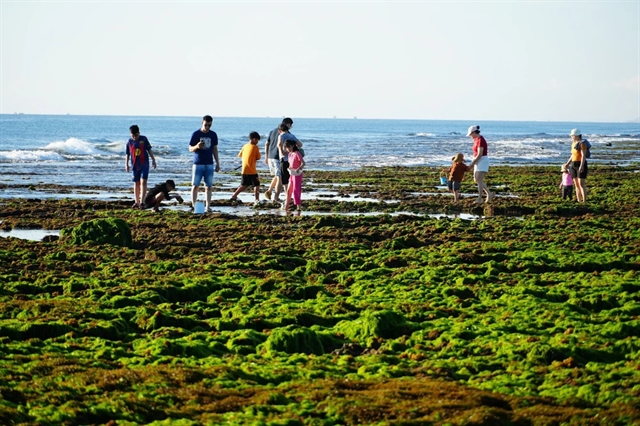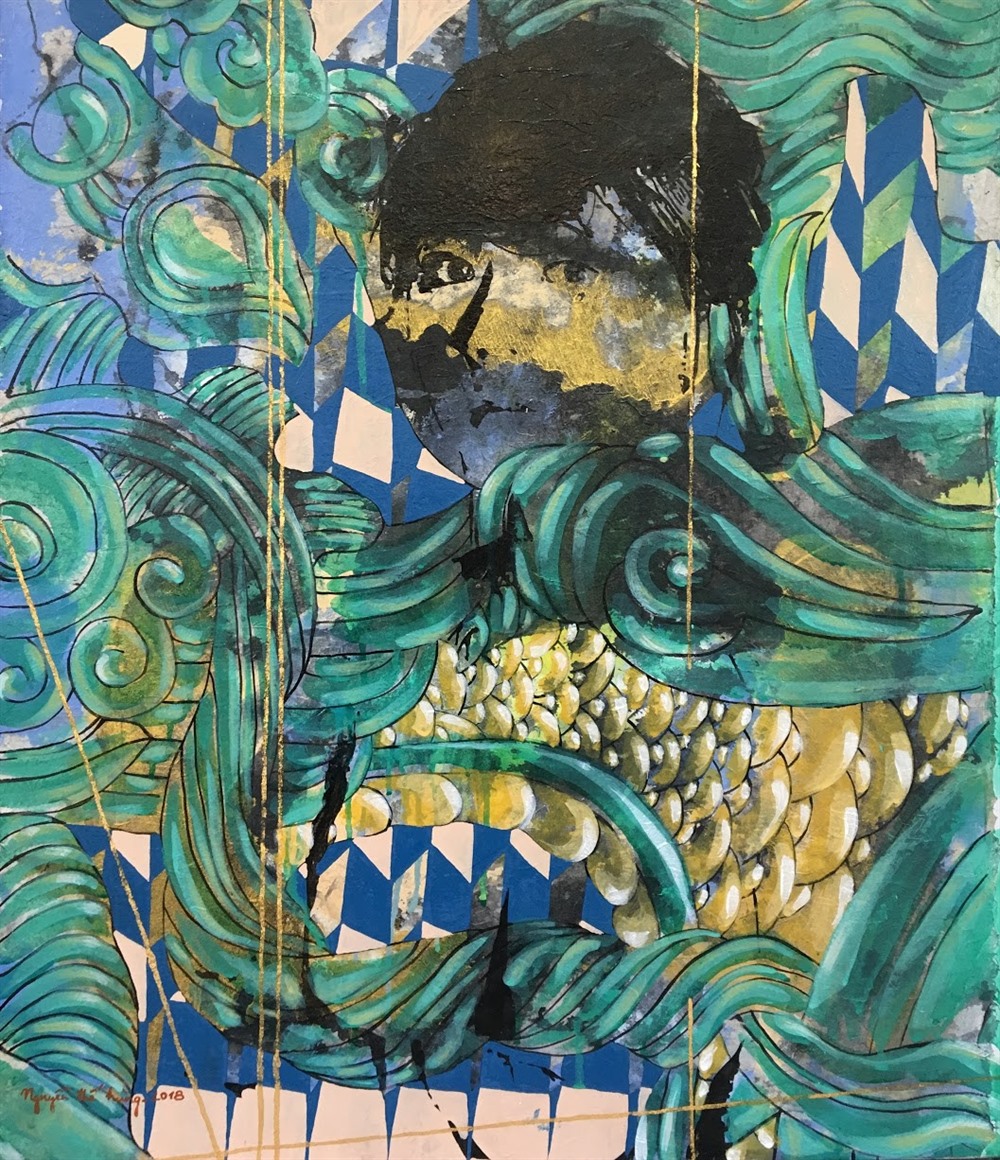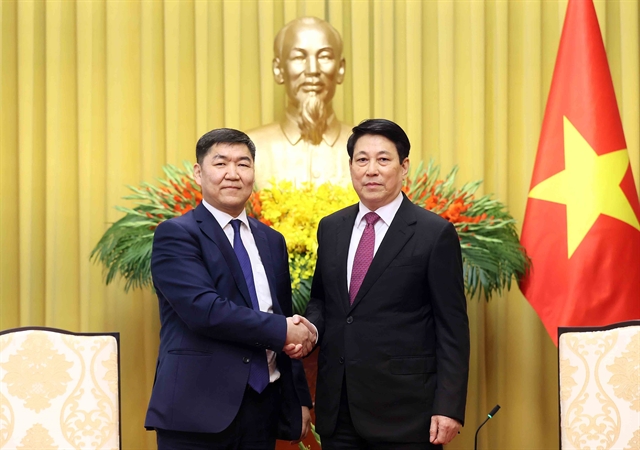 Life & Style
Life & Style

Abstract paintings by Nguyễn Thế Hùng will be on display at the artist’s solo exhibition in New York on April 3-24.
 |
| Captivating: One of the ’Another Land’ paintings by Nguyễn Thế Hùng. |
HÀ NỘI — Abstract paintings by Nguyễn Thế Hùng will be on display at the artist’s solo exhibition in New York on April 3-24.
With the title ‘Another Land’, the exhibition will display new works which are the result of an art residence programme at the Vermont Studio Centre (VSC).
Hùng, 38, received an Artist Grant to work at the centre for four weeks.
Founded in 1984, the centre intends to foster creativity among artists. VSC has grown to become the largest international artists’ and writers’ residency programme in the US.
Hùng joined the programme with some 30 other painters, sculptors and writers from various countries such as the UK, China, Argentina, South Korea, the US and Canada. Each artist has a space to work, and at the end of the course they open their studios and present their works.
Hùng’s artworks have been selected for display at Salomon Arts Gallery. In this series, Hùng describes his painting as “observing the moving points in my imagination.”
“I always find inspiration from nature around me, like the garden I care for every day at home, as well as my experience of four weeks in the US,” he said.
Rodrigo Salomon, owner of the gallery, remarked that his paintings are multi-layered, both literally and figuratively.
“The artist shows skilled combinations of materials, techniques and imagery,” he said.
“Each painting explores the conflicts and relations between eternity and fleetingness, tradition and modernity, philosophy and aesthetics.”
Hùng as usual showcases an imaginative land where he recalls his childhood in the mountains, his own relationship with nature through the planting of trees, and his interest in the greater organic unity of art and life.
In these works, Hùng continues using unique traditional materials of dó (poonah) paper and other delicate, flowing patterns of Vietnamese fine arts and architecture, combined with modern practices and expressions such as a magazine models or pin-up girls.
“Another Land is a place where one may become lost, with both the anxiety and the possibility that entails,” said Salomon.
“In the paintings, we find some shapes appear figurative, some are purely emotional colour and symbols. All of them constantly dazzle, disorient and challenge viewers to look deeper into the paintings,” said Salomon. — VNS




